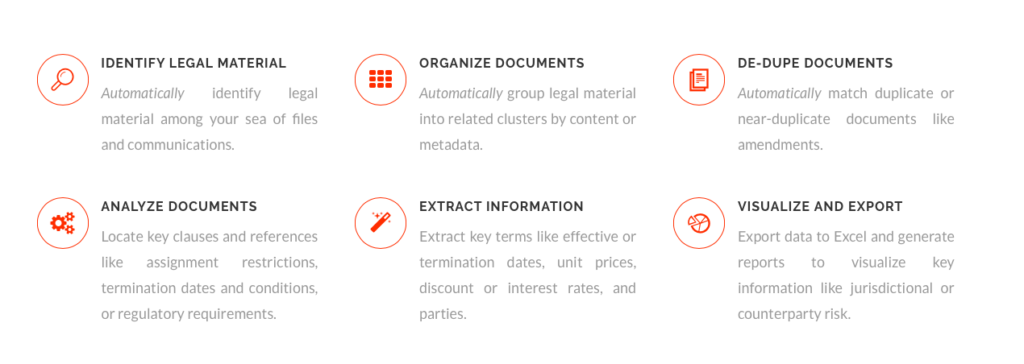
US legal analytics company LexPredict, co-founded by the well-known legal tech pioneer and AI expert, Dan Katz, has made its contract analysis platform open source and free to use in what could be a market changing move.
While LexPredict has gained much attention for its work in court decision prediction, Katz (pictured above) and co-founder Michael Bommarito, have also developed a document analysis tool that uses mainstays of the legal AI world, such as natural language processing and machine learning.

ContraxSuite will be open for all to make use of and adapt for their own benefit, in the same way that other open source software has been shared in the past, such as Linux.
While this may seem counter-intuitive, i.e. ‘why make something free when it is so in demand?’ the hope is that it will encourage far greater uptake of AI technology across the legal sector, something the founders believe will be good for all.
The two founders said: ‘This code base and our public development roadmap will be hosted on Github under a permissive open-source licensing model that will allow most organisations to quickly and freely implement and customise their own contract and document analytics.’

In short, although this appears altruistic, which in large part it is, it could also be a very smart business decision.
The founders added in a statement: ‘Like Redhat does for Linux, we will provide support, customization, and data services to “cover the last mile” for those organisations who need it.’
Of course, some legal businesses and inhouse teams may simply tap the software and never contact LexPredict for input. However, the more broadly their platform is used the more LexPredict becomes the centre of a powerful ecosystem of legal AI applications.
This is a very interesting move, that while not seen before in this segment of the legal tech world, is in fact in keeping with previous patterns in the wider software development world. How far the open source AI system will be taken up remains to be seen, but it is a bold and disruptive move that could increase the use of the technology.
—
As to Katz and Bommarito’s declared logic for doing this, they provided a long statement, some of the key points are:
‘Before we can solve big problems with smart contracts, we need to start by structuring existing legacy contracts. We hope our actions today will help lawyers, companies, and other LegalTech providers accelerate the pace of improvement and innovation through more open collaboration.’
[As to why make it open for all to use]….we lean on the words of Prof. David Agarwal: ‘For many […], software is only a semi-finished good that generates little value until the code has undergone revision by the user. Thus, creating the ultimate finished product will require a sequence of motivating incentives.’
[On why it’s so necessary that AI-driven doc analysis is broadly used]…‘In our experience, few legal departments and law firms debate that their legal documents contain valuable information. Analytics can provide insights into a wide array of opportunities and risks. Standardization can remove frictions for core business operations and increase the rate and quality of transactions.’
—
And, one question that also needs to be asked is: what impact will this have on legal AI companies that are already in the market and quite understandably are not giving out their intellectual property for free?
Here, Katz and Bommarito make this point: ‘…when you ask [legal] organisations to pay a per-document fee for software that almost always requires additional customisation or produces “unfinished” results, their excitement turns into hesitation.’
This appears to be something of a warning shot across the bows of the well known legal AI doc analysis companies in the market and could be interpreted as suggesting their business model needs to be looked at again.
However, we have been here before in other verticals of the software market. Linux is used on just 1.74% of PC/laptops as of June 2017, even though it is well-established and has been available as an open source OS for the last 25 years. In short, free systems don’t always become the main platform. That said, Google’s search engine is free to use and has quickly become a global platform that the majority of people use. Hence, everything to play for here…
Meanwhile, LexPredict continues to form partnerships with other legal sector players and recently has partnered with hybrid legal services provider, Elevate, to launch a new strategic technology initiative called ‘ME2’.
That deal followed another move with an alternative legal services provider in January this year. In that instance it was with LPO, Exigent, with LexPredict’s data analysis and machine learning capabilities seen as augmenting the document review work of the LPO’s team.
All in all Katz and Bommarito seem to be doing all they can to shake up the world of legal AI and legal analytics. Let’s see what happens next.
1 Trackback / Pingback
Comments are closed.